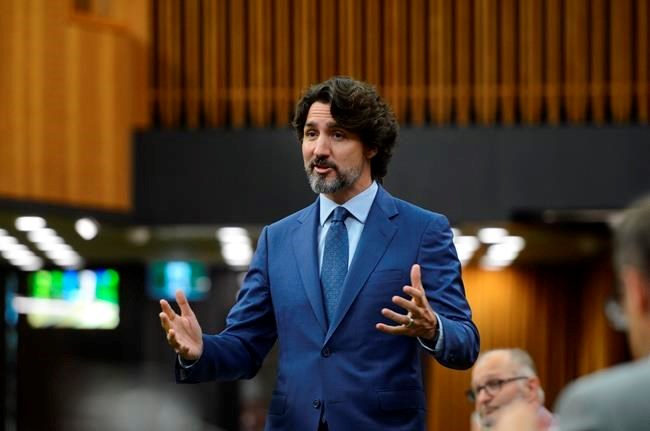With cameras in tow, Prime Minister Justin Trudeau was out touting one of his government’s pandemic relief programs in an Ottawa-area business last week.
A week earlier, Trudeau joined an anti-racism march in progress on Parliament Hill.
With every passing sortie, it is becoming harder for the prime minister to maintain — with a straight face — that the pandemic and the social distancing that attends it stand in the way of a return to normal sittings in the House of Commons.
While distance may make the heart grow fonder in the case of human relationships, the same is not turning out to be true when it comes to the interactions between the minority government and its four opposition counterparts.
On Wednesday, the House adjourned after only 12 minutes as a result of a standoff between the opposition and government over the latter’s latest legislative initiative.
The bill — a hodgepodge of pandemic-related measures — had been circulated beforehand among the parties.
Even as it sought unanimous support to have it passed over a single sitting, the government had to have known it was unlikely to have the votes to secure its adoption. (An offer to set aside some of its most contentious sections was only made after the full Liberal package had predictably hit a wall.)
The NDP had made it clear it would not support the introduction of punitive measures designed to discourage or punish potential abusers of the Canadian Emergency Relief Benefit.
The Bloc Québécois wanted a guarantee that a fiscal update would be forthcoming before sa���ʴ�ý Day in exchange for its co-operation.
The Conservatives have, for weeks, been calling for a return to a regular agenda in the Commons.\
Trudeau spent part of the next morning touring a local business to showcase his government’s wage subsidy program. In all but name, it was a campaign-style event.
Asked what he made of his minority government’s failure to secure a consensus to advance its latest bill — a first since the beginning of the pandemic crisis — Trudeau turned his guns on the opposition majority in general and the Conservatives in particular.
But beyond calling on the other parties to stop playing what he called political games, Trudeau had little to offer to end the standoff.
The prime minister may be relying on public pressure on the opposition parties to not rock the government boat in a time of crisis to facilitate the resolution of the current impasse.
He may or may not have noticed that as sa���ʴ�ý reopens, that pressure is relenting.
At the same time, Trudeau’s rationale for insisting on not reopening the House for regular business until the end of September is wearing thin.
There is an increasingly sharp dissonance between the prime minister’s refusal to bow to pressures to return to regular sittings in the House and have his bills properly debated and his own public forays.
And then there has not been a federal budget since before the fall election.
It is possible to accept the government’s argument that there are too many unknowns to chart a reliable fiscal course and still think that a full-fledged update on the deteriorated state of sa���ʴ�ý’s public finances is overdue.
It may finally be that Trudeau and his team are allowing the fumes of the strong approval ratings that have attended his management of the pandemic to go to their collective heads.
As anyone who has covered Paul Martin’s early days as prime minister can testify, Trudeau would hardly be the first Liberal leader to believe his own polling clippings.
But before the prime minister allows a feeling of invincibility to permeate his thinking, he might consider a few inconvenient facts.
Little more than eight months ago, Trudeau led his party to a defeat in the popular vote and the loss of its governing majority to a lineup of opposition rookies.
Those who currently assume electoral history cannot repeat itself in the next federal election are in no small part banking on the notion that whoever succeeds Andrew Scheer will find the federal Conservatives dug down so deep that it will not surface as a competitive force in time for the next campaign.
There is no doubt that Scheer’s interim has ensured his successor will not have to worry about managing high expectations.
That being said, it was not so long ago — in fact around this time last year — that pundits and strategists alike believed the Bloc Québécois was a spent force only to see it rising from the grave to third place in the Commons on election night.
Chantal Hébert is a columnist for the Toronto Star.



